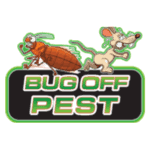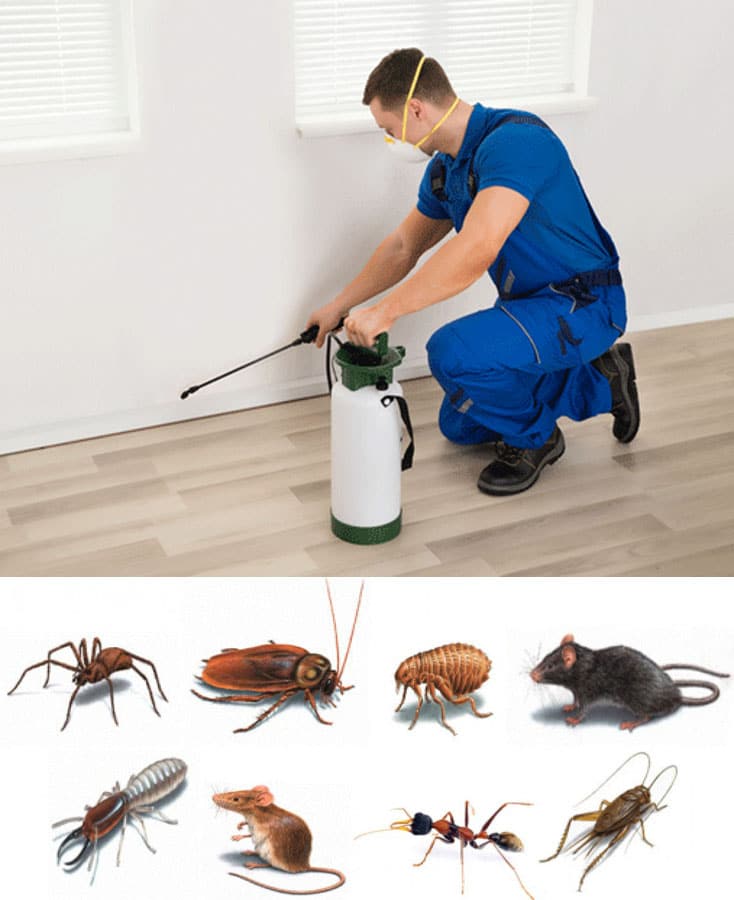Trustworthy Pest Control in Port Charlotte for total pest elimination.
Trustworthy Pest Control in Port Charlotte for total pest elimination.
Blog Article
Discovering Ingenious Techniques and Products for Efficient Bug Control
The landscape of parasite control is evolving, noted by the appearance of innovative methods and products created to improve performance and sustainability. From wise catches equipped with advanced tracking systems to biological methods that utilize all-natural killers, these advancements present a standard change in just how we approach pest administration.
Smart Traps and Monitoring Systems
Just how can modern innovation enhance parasite monitoring? One substantial improvement is the development of wise traps and checking systems, which offer real-time data and analytics for efficient insect control. These systems utilize sensing units and wireless technology to detect bug activity, notifying building supervisors and pest control specialists to infestations prior to they intensify.
Smart catches are equipped with functions such as bait stations that draw in bugs and capture them efficiently. These catches can be checked remotely, allowing for timely interventions and decreasing the need for comprehensive chemical applications. The integration of device learning formulas enables these systems to differentiate in between target insects and non-target varieties, improving the precision of insect control procedures.
Additionally, the data collected from clever catches can be assessed to identify patterns in insect behavior and ecological variables contributing to invasions (Pest Control in Port Charlotte). This details is important for creating targeted insect monitoring strategies customized to certain atmospheres. By welcoming smart catches and monitoring systems, parasite control experts can boost their functional efficiency and lower the ecological impact of insect administration, eventually bring about much safer and more lasting methods in the sector
Organic Bug Control Approaches
Using natural predators and parasites, organic parasite control approaches provide an eco-friendly choice to chemical treatments. This technique includes the introduction or enhancement of particular microorganisms that can normally manage bug populations, consequently reducing reliance on artificial chemicals. Common instances consist of the use of ladybugs to regulate aphid invasions and parasitic wasps to target caterpillars.

Organic control can be classified into 3 primary methods: classic, augmentative, and conservation. Classical organic control involves importing natural opponents from the bug's indigenous habitat, while augmentative control entails enhancing the populace of existing all-natural opponents with releases. Preservation methods focus on creating conditions that support these advantageous microorganisms in the ecosystem.
The effectiveness of biological pest control depends upon understanding the complex communications within ecosystems. It often calls for a detailed assessment of parasite characteristics and the life cycles of both the pests and their all-natural opponents. While biological approaches might not supply prompt outcomes like chemical options, they add to long-term parasite management and ecological community wellness. As awareness of environmental problems grows, organic parasite control techniques are increasingly identified for their sustainable function in integrated parasite administration programs.
Eco-Friendly Chemical Alternatives
Eco-friendly chemical choices offer a viable option for bug administration that lessens environmental impact while successfully controlling insect populations. These choices are derived from all-natural sources and are very carefully developed to target certain insects without damaging useful organisms, making them a vital component of lasting bug control approaches.
Among the most reliable green alternatives are plant-based pesticides, such as neem oil and pyrethrin, which are stemmed from the seeds and flowers of different plants. These substances interfere with the life process of insects, reducing their populaces without the harmful effects connected with standard chemicals - Pest Control in Port Charlotte. In addition, important oils like pepper mint and clove oil display repellent residential properties, further enhancing their energy in parasite management

In addition, environmentally friendly chemical choices commonly break down faster in the environment, decreasing the danger of soil and water contamination. This particular aligns with the boosting customer demand for lasting methods in agriculture and city pest control. As study proceeds to advancement, the growth of innovative green solutions will certainly better enhance efficacy and expand application areas, allowing pest administration experts to embrace greener, much more liable approaches in their techniques while securing human health and wellness and the environment.
Pheromone Interruption Methods
One more innovative strategy my site in lasting insect management is the usage of scent disturbance strategies. These methods exploit the all-natural chemical signals, or scents, that insects use for interaction, specifically in breeding behaviors. By disrupting these signals, bug populaces can be efficiently managed without resorting to harmful chemicals.
Pheromone traps are frequently employed in this strategy. These catches utilize synthetic variations of insect pheromones to lure male bugs, thus reducing their capability to find females and recreate. In time, this can lead to a considerable decrease in insect populations. In addition, the release of repellent scents can create confusion amongst pests, even more inhibiting their breeding procedures - Pest Control in Port Charlotte.

Integrated Bug Monitoring Strategies
Reliable insect control often needs a thorough technique, and Integrated Parasite Management (IPM) methods give a framework for accomplishing this objective. IPM integrates different sites administration techniques to minimize insect populations while reducing reliance on chemical pesticides. This diverse approach starts with comprehensive tracking and identification of pests, enabling targeted interventions based on specific insect pressures.
Cultural techniques, such as crop rotation and sanitation, play an important function in protecting against parasite establishment. Organic controls, consisting of natural predators and parasitoids, are utilized to preserve insect populations at manageable levels. When necessary, selective chemical treatments are applied, stressing reduced poisoning to non-target types and the atmosphere.
Furthermore, education and outreach are essential elements of IPM, advertising recognition among stakeholders concerning lasting practices and pest life process. The versatility of IPM enables practitioners to react successfully to altering bug characteristics and environmental conditions. By using this all natural technique, IPM not just enhances parasite control effectiveness however also adds to lasting environmental equilibrium. Eventually, Integrated Insect Management stands for a forward-thinking service that straightens farming efficiency with environmental stewardship, making it important in modern bug control techniques.

Conclusion
Finally, the combination of cutting-edge methods and items for effective parasite control represents a substantial development in lasting pest administration. Smart catches and checking systems, biological bug control approaches, environment-friendly chemical choices, and pheromone disturbance techniques collectively dig this boost the effectiveness of insect monitoring strategies. By embracing these strategies, the reliance on traditional chemicals can be lowered, promoting environmental health and wellness while making certain effective bug control. Proceeded study and development in these areas will better improve insect administration techniques.
Report this page